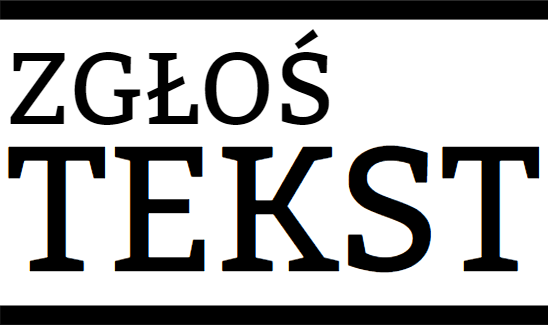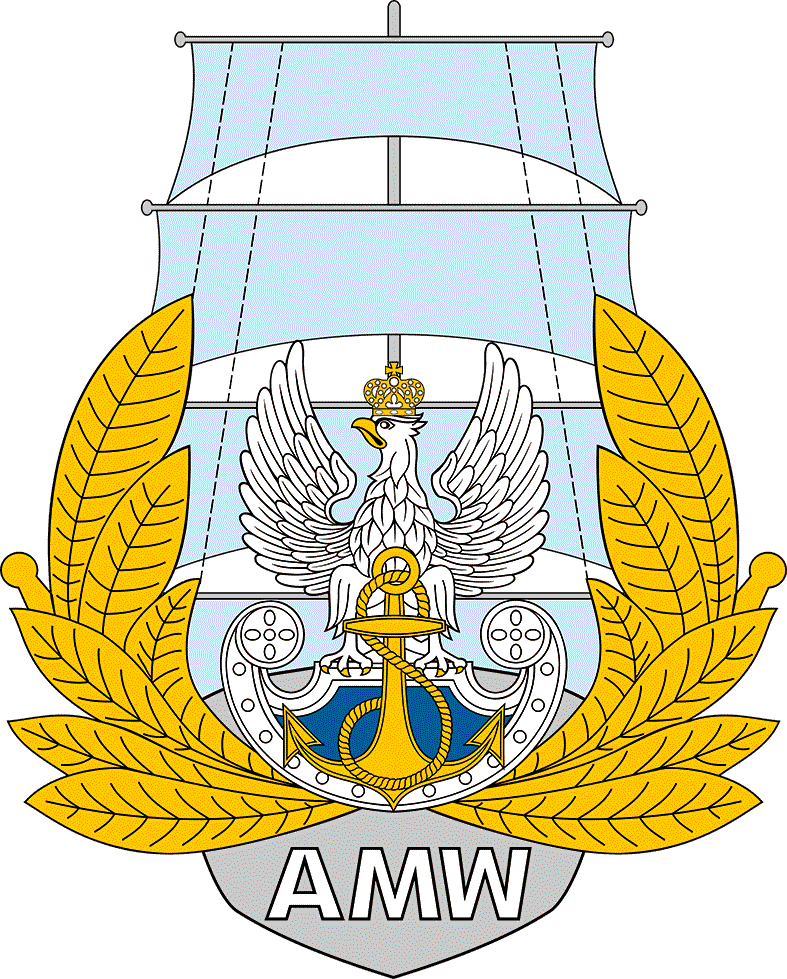Proamerykanizm w polskiej polityce bezpieczeństwa w XXI wieku
DOI:
https://doi.org/10.34813/37coll2023Słowa kluczowe:
polska polityka bezpieczeństwa, proamerykanizm, ofensywny bandwagoning, stosunki polsko-amerykańskie, sojusz polsko-amerykańskiAbstrakt
Artykuł dotyczy proamerykanizmu w polskiej polityce bezpieczeństwa w pierwszych dwóch dekadach XXI wieku. Takie tendencje są widoczne niemal we wszystkich państwach Europy Środkowo-Wschodniej, jed- nak w Polsce są szczególnie wyraźne i przybierają formę bandwagoningu ofensywnego. Proamerykanizm w Polsce ma zróżnicowane tło, ale najważniejszą motywacją jest postrzeganie Stanów Zjednoczonych jako głównego zewnętrznego gwaranta bezpieczeństwa państwa. Proamerykanizm w polskiej polityce bezpieczeństwa był szczególnie widoczny w okresie rządów amerykańskich administracji republikańskich, których polityka międzynarodowa była krytykowana w Europie Zachodniej. Przejawiał się on przede wszystkim silnym zaangażowaniem Polski w operacje wojskowe prowadzone przez USA, dążeniami do lokalizacji amerykańskich baz w Polsce oraz zakupami amerykańskiego sprzętu wojskowego. Ze względu na silny proamerykanizm w polskiej polityce bezpieczeństwa, Polska jest postrzegana jako najbardziej gorliwy sojusznik USA w Europie Środkowo-Wschodniej. W literaturze określana jest m.in. jako państwo-klient realizujące politykę bandwagoningu wobec USA. W praktyce proamerykańska polityka bezpieczeństwa nie przynosi Polsce znaczących korzyści wykraczających poza standardowe gwarancje bezpieczeństwa. Ponadto komplikuje stosunki Polski z zachodnioeuropejskimi sojusznikami, a tym samym niekorzystnie wpływa na polskie interesy bezpieczeństwa.
Bibliografia
Applebaum, A. (2005). In Search of PRO Americanism. Foreign Policy, 149, 32–41.
Applebaum, A. (2005, July 5). Who Are the Pro-Americans. The Washington Post. Retrieved from https://www.wsj.com/articles/SB112051174206776651.
Ashfaq, A. & Hussein, A. B. (2014). Superpower Syndrome: The Enduring Debate on Pro-Amer- icanism and Anti-Americanism in Foreign Media. Asian Social Science, 10(3), 145–158.
Aslam, W. (2013). The United States and Great Power Responsibility in International Society. Drones, rendition and invasion. Routledge.
Bandeira, L. A. M. (2017). The Second Cold War. Geopolitics and the Strategic Dimensions of the USA. Springer.
Beyer, H. & Liebe, U. (2014). Anti-Americanism in Europe: Theoretical Mechanisms and Em- pirical Evidence. European Sociological Review, 30(1), 90–106.
Blejwas, S. A. (2010). New Political Directions: A Transition toward Popular Participation in Politics, 1863–90. In M. B. Biskupski, J. S. Pula, & P. J. Wróbel, The Origins of Modern Polish Democracy. Ohio University Press.
Bobrow, D. B. (2008). Anti-Americanism and International Security: Indications in International Public Opinion. In R. Higgott & I. Malbašić, The Political Consequences of Anti-American- ism (pp. 107–125). Routledge.
Bouchet, N. (2015). Democracy Promotion as US Foreign Policy. Bill Clinton and democratic enlargement. Routledge.
Cameron, F. (2005). US Foreign Policy after the Cold War. Global hegemon or reluctant sheriff? Second edition. Routledge.
Centrum Badania Opinii Społecznej. (2003). Komunikat z badań nr 51/2003. Wzrost nastrojów antywojennych. Retrieved from https://www.cbos.pl/SPISKOM.POL/2003/K_051_03.PDF.
Centrum Badania Opinii Społecznej. (2012). Komunikat z badań nr 157/2012. Polacy o wybo- rach prezydenckich w Stanach Zjednoczonych, stosunkach polsko-amerykańskich i wpływie USA na świat. Retrieved from https://www.cbos.pl/SPISKOM.POL/2012/K_157_12.PDF.
Centrum Badania Opinii Społecznej. (2019). Komunikat z badań nr 100/2019. O polsko-amerykańskiej współpracy wojskowej i stosunkach bilateralnych. Retrieved from https://www.cbos.pl/SPISKOM.POL/2019/K_100_19.PDF.
Chiozza, G. (2009). A Crisis Like No Other? Anti-Americanism at the Time of the Iraq War. European Journal of International Relations, 15(2), 257–289.
Collins Dictionary. (n.d.). Pro-American. Retrieved from https://www.collinsdictionary.com/dictionary/english/pro-american.
Delaney, K. & Antoszek, A. (2017). Americanization and Anti-Americanism in Poland. A Case Study, 1945–2006. In V. Dominguez & J. C Desmond (Eds.), Global Perspectives on the United States: Pro-Americanism, Anti-Americanism, and the Discourses Between (pp. 73–91). University of Illinois Press.
Doeser, F. (2018). Historical experiences, strategic culture, and strategic behavior: Poland in the anti-ISIS coalition. Defence Studies, 18(4), 454–473.
Domber, G. F. (2008). Supporting the Revolution: America, Democracy, and the End of the Cold War in Poland, 1981–1989. ProQuest.
Dominguez, V., & Desmond, J. C. (Eds.). (2017). Global Perspectives on the United States: Pro- Americanism, Anti-Americanism, and the Discourses Between. University of Illinois Press. Dunay, P. (2013). NATO enlargement: close to the end? In G. P. Herd, & J, Kriendler (Eds.),
Understanding NATO in the 21st Century. Alliance strategies, security and global governance (pp. 50–66). New York: Routledge.
Duncan, F., Moehler, D. C., & Silver, L. R. (2015). Pro- and Anti-Americanism in Sub-Saharan Africa. International Journal of Public Opinion Research, 27(2), 1–24.
Dunn, D. H. (2002). Poland: America’s New Model Ally. Defence Studies, 2(2), 63–86. Dybczyński, A. (2014). Sojusze Międzynarodowe. Wydawnictwo Naukowe Scholar.
Fisher, M. (2013, May 7). Anti-American countries can become pro-American. Here’s how South Korea did it. The Washington Post. Retrieved from https://www.washing- tonpost.com/news/worldviews/wp/2013/05/07/anti-american-countries-can-become-pro- american-heres-how-south-korea-did-it/.
Goh E., & Sahashi, R. (2020). Worldviews on the United States, alliances, and the changing international order: an introduction. Contemporary Politics, 26(4), 371–383.
Hackmann, J. (2018). Defending the “Good Name” of the Polish Nation: Politics of History as a Battlefield in Poland, 2015–18. Journal of Genocide Research, 20(4), 587–606.
Haglund, D. G. (2009). The US–Canada relationship: How ‘special’ is America’s oldest unbro- ken alliance? In J. Dumbrell, & A. R. Schäfer (Eds.), America’s ‘Special Relationships’ Foreign and domestic aspects of the politics of Alliance (pp. 60–75). Routledge.
Hallams, E. (2010). The United States and NATO since 9/11. The transatlantic alliance renewed. Routledge.
Holsti, O. R. (2006). Making American Foreign Policy. Routledge.
Jančošekovà, V. (2017). Regional cooperation in Central and Eastern Europe and its implications for the EU. European View, 16, 231–238.
Kancelaria Premiera Rady Ministrów. (2019). U.S.-Poland Joint Declaration on 5G. Retrieved from https://www.premier.gov.pl/files/files/5g_polska.pdf.
Katzenstein, P. J., Keohane, R. (Eds.). (2006). Anti-American in World Politics. Ithaca: Cornel University Press.
Keohane, R. O. (2007). Anti-Americanisms In World Politics. Polis/R.C.S.P./C.P.S.R, 14(1&2), 17–31.
Kiwerska, J. (2014). Kwestie bezpieczeństwa w stosunkach polsko–amerykańskich. Trendy i perspektywy. In S. Wojciechowski, & A. Potyrała (red.), Bezpieczeństwo Polski. Współczesne wyzwania (pp. 60–80). Difin.
Kuźniar, R. (2012). Polityka Zagraniczna III Rzeczypospolitej. Wydawnictwo Naukowe Scholar. Krastev, I. (2004). The Anti-American Century?. Journal of Democracy, 15(2), 7–25.
Lagadec, E. (2012). Transatlantic Relations in the 21st Century Europe, America and the rise of the rest. Routledge.
Lanoszka, A. (2020). Poland in a time of geopolitical flux. Contemporary Politics, 26(4), 458–474.
Larsen, J. A. (2017). NATO’s responses to Russian belligerence: an overview. In K. Friis (Ed.), NATO and Collective Defence in the 21st Century. An Assessment of the Warsaw Summit (pp. 8–15). New York: Routledge.
Lazar, L. (2005, August 22). In Search of Pro Americanism?. Retrieved from http://www.kent-law.edu/international/stories/Pro_Americanism.pdf.
Lieber, R. J. (2006). The United States and Europe: Explaining the Transatlantic Bonds. In D. P.
Forsythe, P. C. McMahon, & A. Wedeman (Eds.), American Foreign Policy in a Globalized World (pp. 261–286). Routledge.
Lyman, R. (2014, June 2). As Poles Focus on Belonging to Europe, Their Love for the U.S. Has Cooled a Bit. The New York Times. Retrieved from https://www.nytimes.com/2014/06/03/world/europe/a-cooling-in-polands-love-affair-with-the-us.html. McCrisken, T., & Phythian, M. (2009). The offensive turn: US intelligence and the ‘war on terror’. In I. Parmar, L. B. Miller, & M. Ledwidge (Eds.), Obama and the World. New directions in US foreign policy. Second edition (pp. 185–196). Routledge.
Markovits, A. S. (n.d.). European Anti-Americanism (and Anti-Semitism): Ever Present Though Always Denied. Center for European Studies.
Meunier, S. (2005). Anti-Americanisms in France. European Studies Newsletter, XXXIV(3/4), 1–4.
Meseguer, C., Jaupart, P. & Aparicio, J. (2017). The Limits of Material Benefits: Remittances and Pro-Americanism in Mexico. Journal of Politics in Latin America, 9(2), 3–40.
Michalik, D. (2019). Współpraca energetyczna w Grupie Wyszehradzkiej - szanse i zagrożenia. In M. Ruszel, & S. Podmiotko (red.), Bezpieczeństwo energetyczne Polski i Europy. Uwa- runkowania - wyzwania – innowacje (pp. 134–151). Instytut Polityki Energetycznej im. I. Łukasiewicza.
Ming-Chang, T. (2021). Will you (still) love me tomorrow: Pro-Americanism and the China factor in Asia. Asian Journal of Social Science, 1.
Ministry of National Defence Republic of Poland. (2018). Proposal for a U.S. Permanent Pres- ence in Poland. Retrieved from https://www.politico.eu/wp-content/uploads/2018/05/Pro- posal-for-a-U.S.-Permanent-Presence-in-Poland-2018.pdf.
Moens, A. (2016). The Foreign Policy of George W. Bush. Values, Strategy, and Loyalty. Routledge.
Nyyssönen, H. (2018). The East is different, isn’t it? – Poland and Hungary in search of prestige. Journal of Contemporary European Studies, 26(3), 258–269.
Orzelska-Stączek, A. (2011). Polityka zagraniczna Polski wobec wybranych kwestii spornych w stosunkach transatlantyckich (1989–2004). Instytut Studiów Politycznych Polskiej Aka- demii Nauk.
Pew Research Center. (n.d.). U.S. Favorarability. Retrieved from https://www.pewre- search.org/global/2020/01/08/u-s-image-generally-favorable-around-the-world-but-mixed- in-some-countries/.
Polski Instytut Spraw Międzynarodowych. (2022). PISM Report. Polish Public Opinion on the United States and Polish-American Relations. PISM.
Preda, C. (2004). Romanian Pro-Americanism: Treason and Defamation. Revue Internationale et Stratégique, 53(1), 107–112.
President of Poland. (2019). Joint Declaration on Defense Cooperation Regarding the United States Force Posture in the Republic of Poland. Retrieved from https://www.presi- dent.pl/en/news/art,1069,joint-declaration-on-defense-cooperation-regarding-us-force-posture-in-the-republic-of-poland.html.
Pro-Americanism in Poland. (1964, June 29). The New York Times. Retrieved from https://www.nytimes.com/1964/06/29/archives/proamericanism-in-poland.html.
Raś, M. (2017). Foreign and security policy in the party discourse in Poland: main future. Revista UNISCI / UNISCI Journal, 43, 136–137.
Reeves, Ch. (2019). From Intervention to Retrenchment: Poland’s Strategic Culture and the 2011 Libyan Campaign. Europe-Asia Studies, 71(7), 1140–1161.
Renshon, S. A. (2010). National Security in the Obama Administration. Reassessing the Bush Doctrine. Routledge.
Rensmann, L. (2006). Europeanism and Americanism in the Age of Globalization. European Journal of Political Theory, 5(2), 139–170.
Rubin, B. (2002). November/December). The Real Roots of Arab Anti-Americanism. Foreign Affairs. Retrieved from https://www.foreignaffairs.com/articles/middle-east/2002-11- 01/real-roots-arab-anti-americanism.
Schnepf, R. (2019, September). Czas na reaktywację. USA – Polska – UE. Raport. Retrieved from https://ec.europa.eu/poland/sites/poland/files/docs/news/raport_czas_na_reak- tywacje_usa-polska-ue.pdf.
Shor, F. (2010). Dying Empire. U.S. imperialism and global resistance. Routledge.
Snyder, G. H. (1997). Alliance Politics. Cornell University Press.
Sperling, J., & Webber, M. (2019). The European Union: security governance and collective securitisation. West European Politics, 42(2), 228–260.
Steff, R. (2016). Strategic Thinking, Deterrence and the US Ballistic Missile Defense Project. From Truman to Obama. Routledge.
Stivachtis, Y. A. (2007). Understanding Anti‐Americanism. Research Institute for European and American Studies.
Stola, D. (2020). Opting out of Socialism: For-Profit Mobility from Communist Poland. East European Politics and Societies and Cultures, 201X, 1–25.
Sullivan, S. (n.d.). Kosovo’s America Obsession. Time. Retrieved from https://time.com/kosovo- independence-america-obsession/.
Sylvan, D. & Majeski, S. (2009). U.S. Foreign Policy in Perspective. Clients, Enemies and Em- pire. Routledge.
Tickner, A. B., Cepeda, M., Bernal, C. Y., & Luis, J. (2015). Anti-Americanism, pro-Americanism and Common Sense in Latin America. Foro Internacional, 55(3), 805–845.
Toje, A. (2008). America, the EU and Strategic Culture. Renegotiating the transatlantic bar- gains. Routledge.
U.S. Department of State. (2008). Declaration on Strategic Cooperation Between the United States of America and the Republic of Poland. Retrieved from https://2001- 2009.state.gov/r/pa/prs/ps/2008/aug/108661.htm.
U.S. Department of State. (2020). Defense Cooperation Agreement Between the United States of America and Poland. Retrieved from https://www.state.gov/wp-content/up- loads/2021/01/20-1113-Poland-EDCA.pdf.
Vartanova, I., Sokolov, B., Inglehart, R. F., Ponarin, E. & Zimmerman, W. (2018). Disillusion- ment and Anti-Americanism in Russia: From Pro-American to Anti-American Attitudes, 1993–2009. International Studies Quarterly, 62(3), 534–547.
Walt, S. M. (1987). The Origins of Alliances. Cornell University Press.
Waltz, K. N. (1979). Theory of International Politics. Addison-Wesley Publishing Company Inc.
Zaborowski, M. & Longhurst, K. (2003). America’s Protégé in the East? The Emergence of Poland as a Regional Leader. International Affairs, 79(5), 1009–1028.
Zdravkovski, A. (2019). Polish Politics, April 1989–October 2015. In S. P. Ramet, K. Ringdal, & K. Dośpiał-Borysiak (Eds.), Civic and Uncivic Values in Poland. Value Transformation, Education, and Culture (pp. 15–40). Central European University Press.
Zięba, R. (2013). Polityka zagraniczna Polski w strefie euroatlantyckiej. Wydawnictwa Uniwersytetu Warszawskiego.
Zięba, R. (2018). Teoria bezpieczeństwa państwa w ujęciu neorealistycznym. Studia Politologiczne, 49, 13–32.
Pobrania
Opublikowane
Numer
Dział
Licencja
Prawa autorskie (c) 2024 Łukasz Jureńczyk

Utwór dostępny jest na licencji Creative Commons Uznanie autorstwa – Użycie niekomercyjne – Bez utworów zależnych 4.0 Międzynarodowe.





